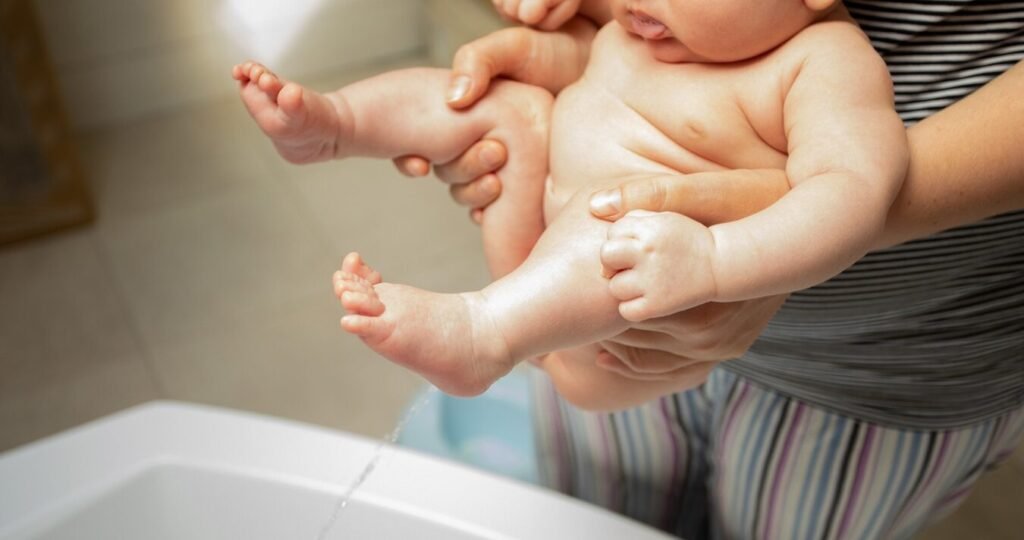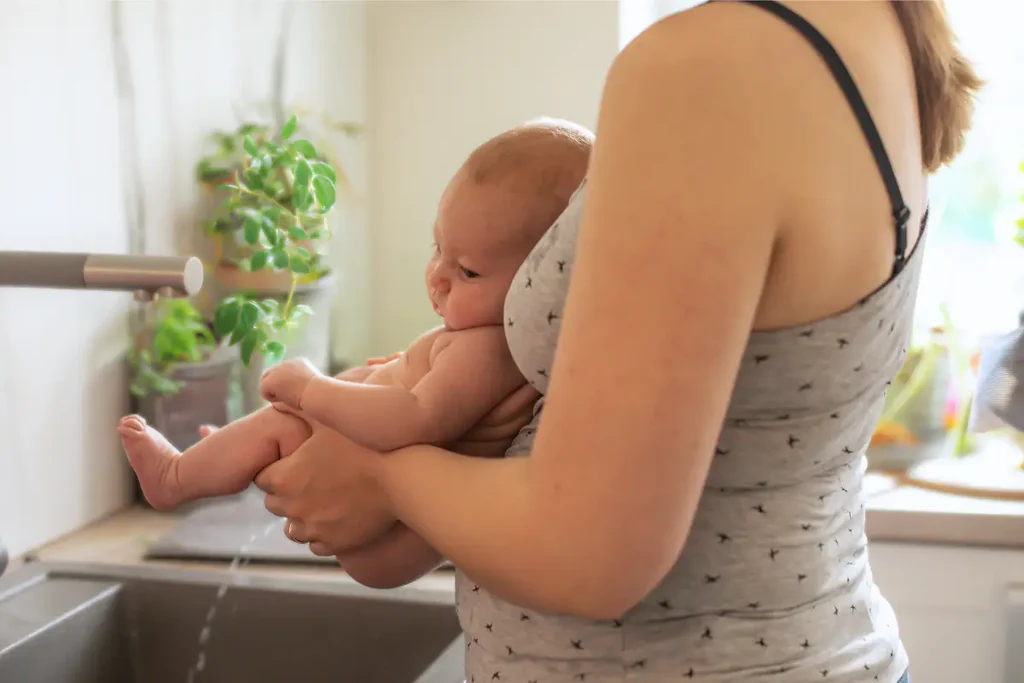In today’s world, where disposable diapers have become nearly synonymous with infant care, the idea of raising a child without them may seem radical or even uncomfortable. But in fact, the method of natural hygiene, also known as elimination communication (EC), is not something new. It’s an ancient, intuitive practice that humanity has used for millennia. In her book Diaper Free, Ingrid Bauer shares her personal experience and insightful observations, rethinking the traditional approach to infant hygiene. She encourages parents to trust their child’s bodily signals, build a closer connection, and see the process of elimination not as a problem but as part of everyday communication. This article is not just a review of the book but also an invitation to reflect: do we really need diapers as much as we think we do?
Ingrid Bauer — Diaper Free
“I never imagined my child wouldn’t use diapers — especially now, when ‘buying diapers’ is basically a synonym for ‘having a baby.’”
— Ingrid Bauer, Diaper Free
I never thought anyone could write an entire book about baby poop — and yet here it is: gentle, fascinating, and surprisingly tender. In truth, the book isn’t just about elimination. It’s about naturalness, intuition, and how deeply we’ve been deceived.
The book debunks not only the cult of diapers but also the cult of formula — that profitable substitute for a mother’s breast, sold to us by clever businessmen. The author gently and respectfully critiques all the players involved, lays out historical context, and explains everything clearly and methodically.
It’s been a long time since I read a book that explores a topic so thoroughly. You’ll not only learn how we ended up needing diaper rash cream, but also what it means to be a good parent — especially when we tend to complicate things unnecessarily where solutions are actually simple and obvious. I recommend it both to those interested in elimination communication and those convinced it’s not for them — because this book goes far beyond just baby butts.
For me, it’s currently my number one must-read when preparing for parenthood. Ingrid speaks about natural parenting — about how it should be. She gave birth to her three children at home, beside a warm fireplace, retreating from society for at least a few weeks each time, shedding clothing, and focusing on what matters most: bonding, listening to her baby’s rhythms, and building unity and understanding.
Diapers, Ecology, Capitalism
It’s astonishing how many myths exist just because someone said something, and others repeated it. As a result, we stand on a half-destroyed planet, wondering how it came to this. One year of diaper use generates 2.5 tons of non-recyclable waste — instead of returning nutrients to the earth, as nature intended.
What resonates with me most in this book is the acknowledgment that there are people who benefit from me feeling bad. If I feel fine, it’s nearly impossible to sell me anything — I’m not profitable. But if my child is not just a child but some kind of underdeveloped piglet, then I need not only diapers and rash creams (caused by diapers), but also potties, bibs, wet and dry wipes, pacifiers, a nanny, a cleaner, a psychiatrist, antidepressants, and a whole arsenal of gadgets “to make life easier.”
A bunch of companies, a mountain of money, and me — feeling like I’m constantly lacking something. Like Socrates, who is said to have exclaimed when he entered the marketplace, “How many things there are that I do not need!”
Of course, the author herself could be accused of being commercial too — except, as she herself writes, this book costs the same as one pack of diapers.
And just so you don’t think I was paid to advertise it: everything I’ve said so far applies mainly to the first third of the book. The rest seems a bit drawn out and repetitive — useful for some, though I personally prefer it more concise.
The Method of Natural Infant Hygiene or Elimination Communication

The method of elimination communication (EC), also known as natural infant hygiene or “pottying,” is a parenting approach where diapers are not relied upon constantly. Instead, parents learn to recognize their baby’s cues for needing to pee or poop and respond in time by offering the baby a chance to eliminate in a designated spot (sink, bowl, toilet, bush, etc.).
Key Principles of the Method
- Observation
Parents carefully watch their baby, learning their behaviors, facial expressions, sounds, or movements that precede elimination. - Intuition
The method also relies on parental intuition — the ability to “sense” the baby’s needs, which develops over time. - Communication
Parents use sound cues (like “psss-psss”) to associate them with the act of elimination. Babies begin to respond to these sounds. - Timing
Natural rhythms are considered: elimination usually occurs after sleep, feeding, or activity. At night, babies often stir slightly when they need to go. - Offering
Instead of waiting for an “accident” in a diaper, parents offer the opportunity to eliminate by holding the baby over a bowl, toilet, or sink. The position invites the baby to relax and let go.
Important Notes
The elimination communication method doesn’t mean giving up diapers completely — it encourages mindful and partial use.
It’s not about “training” but about sensitive partnership and mutual understanding between child and adult.
It can be fully or partially adopted: some parents practice it only at home, some only at specific times. Others transition to it completely.
See also:



